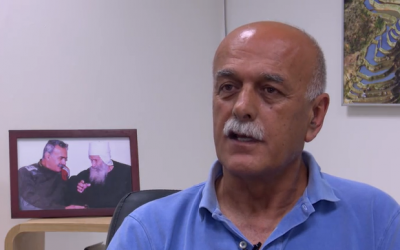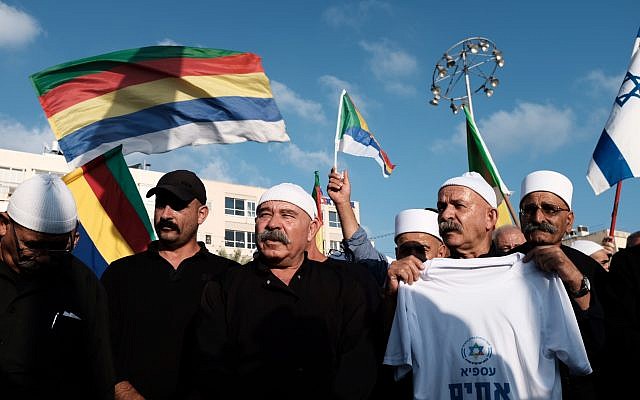Amid growing backlash over nation-state law, Avi Gabbay and Tzipi Livni slam Netanyahu for excluding from it a specific provision of equal rights for minorities

Labor party chairman Avi Gabbay and his colleague Tzipi Livni, the opposition leader in the Knesset, on Saturday promised if elected to enshrine Israel’s Declaration of Independence as the country’s de-facto constitution, amid growing protests against the recently passed nation-state law that has been criticized as discriminatory.
“The Declaration of Independence will become the Basic Law, and it states that Israel will be the nation-state of the Jewish people and will ensure equal rights for all its citizens while preserving the country’s Jewish and democratic identity,” Gabbay and Livni said.
The lawmakers accused Prime Minister Benjamin Netanyahu of “seeking to divide the Israeli people” by refusing to include a clause in the Likud-sponsored legislation ensuring equal rights for minorities.
The nation-state law that passed on July 19 as a Basic Law enshrines Israel as “the national home of the Jewish people” for the first time, and says “the right to exercise national self-determination in the State of Israel is unique to the Jewish people.” It has sparked widespread criticism at home, the international community, and Jewish groups abroad.
The law became one of Israel’s so-called Basic Laws, which, like a constitution, guide the country’s legal system and are usually more difficult to repeal than regular laws.

Israel’s 1948 Declaration of Independence defined it as a Jewish and democratic state. The Netanyahu government says the new law merely enshrines the country’s existing character, and that Israel’s democratic nature and provisions for equality are anchored in existing legislation. But critics say it undermines the constitution’s commitment to equality; earlier iterations of the law including phrasing specifying Israel’s commitment to equality for all its citizens.
The nation-state law has prompted particular outrage from Israel’s Druze community, whose members say its provisions render them second-class citizens.
Israel’s Druze see themselves as patriotic Israelis who are conscripted into the IDF and have shed blood in the country’s defense. They have been fiercely loyal to the state and some of their leaders have risen to high office in the military and politics.
Netanyahu has been trying to placate Druze anger over the new law with a package of benefits, but on Thursday he cut short a meeting with community leaders, citing criticism by Brig. Gen. (res.) Amal As’ad accusing him of turning Israel into an “apartheid state” and calling the law “evil and racist.”

In a sign of solidarity, thousands of Israelis, including several retired high-ranking military officials, were attending a mass protest organized by Druze activists in Tel Aviv on Saturday night.
As reported by The Times of Israel
